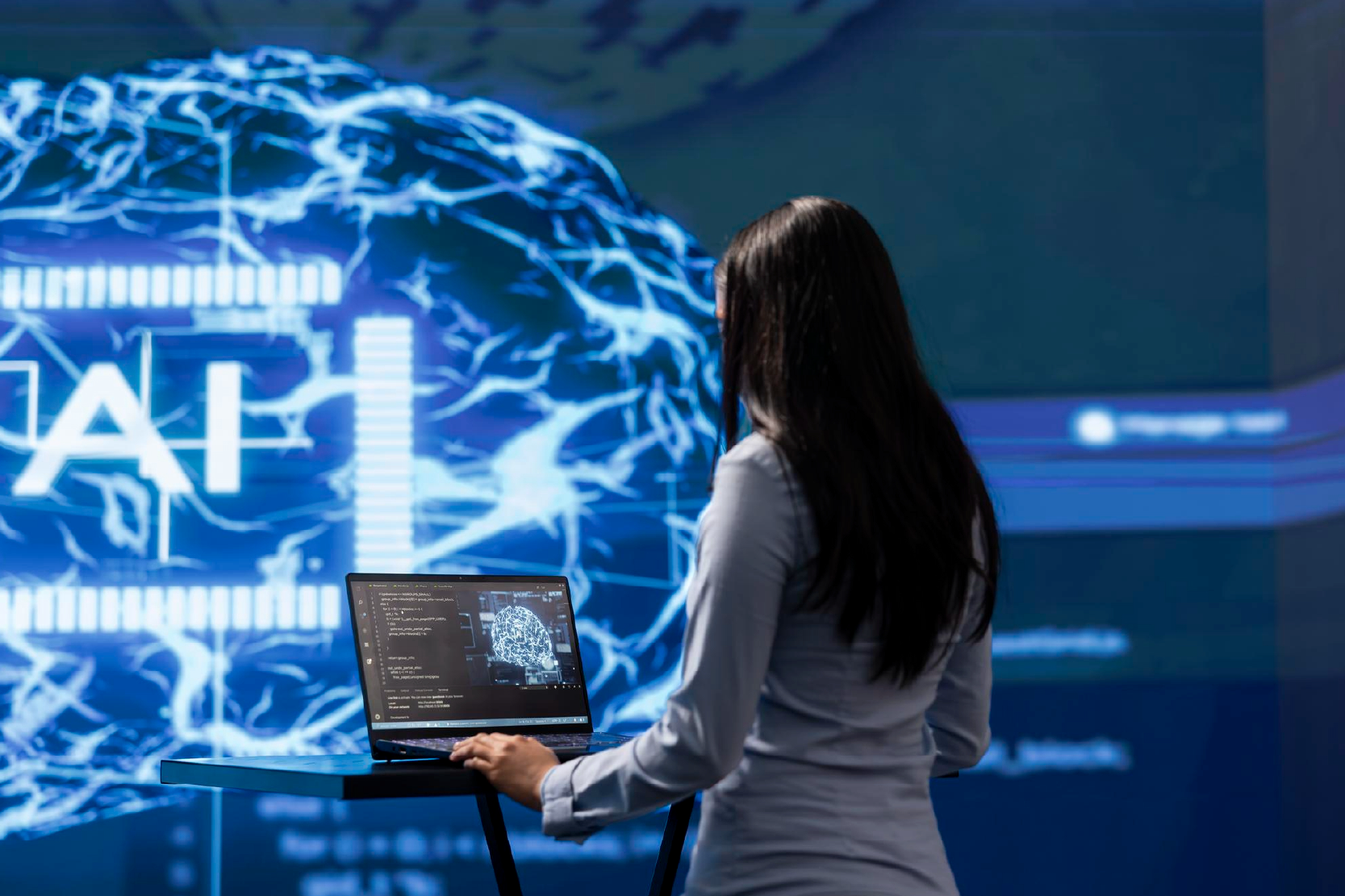What is AI in Higher Education and How is it Used?

Artificial Intelligence is no longer a new concept; it’s part of our everyday reality. From voice assistants in our homes to recommendation systems on our favorite apps, AI has woven itself into nearly every aspect of life. Its versatility makes it applicable across a wide range of sectors, including education, healthcare, and industry.
The question here is why is AI becoming such a vital part of the modern world? The answer is simple: efficiency. In a time when no one wants to spend more time than necessary on routine or repetitive tasks, that’s where AI comes in – it delivers faster, smarter solutions that streamline processes and free us up to focus on what truly matters.
Let’s talk about the education sector. The way we used to teach and learn has changed drastically because of the introduction of AI. Gone are the days of one-size-fits-all classrooms. Now, we have smart classrooms, interactive learning platforms, and AI tools that are changing the game. But AI isn’t just about grading papers or answering questions. It’s about creating personalized learning experiences, handling admin work behind the scenes, and even improving how schools manage their finances. As technology continues to advance, education is advancing right along with it—smarter, faster, and more student-focused than ever.
When it comes to higher education the role of AI is more advanced. With the AI tools available students can easily manage their financial interactions with universities from making payments to tracking transactions. At the same time, AI helps automate routine tasks and reduces the operational burden on staff, leading to greater efficiency and improved overall experience.
That’s where higher education software solutions come into play. These platforms address the challenges faced by colleges and universities. They offer everything from enrollment management to learning analytics and campus communication tools.
AI Benefits and Challenges for Students and Staff in Higher Education
AI is transforming the higher education experience, offering a wide range of benefits for both students and staff:
- Personalized Learning - AI customizes learning based on how each student is doing, their speed, and what they prefer, helping them stay engaged and perform better.
- Automated Admin Tasks - AI automates tasks like admissions, grading, and scheduling, giving staff more time to focus on important work.
- Smart Finance Support - AI makes fee payments, financial aid, and expense tracking easier, reducing mistakes and making sure everything runs smoothly and on time.
- Smart Student Tracking– AI helps schools identify students who need support early, so they can step in, offer help, and improve student success.
- 24/7 Chatbot – AI-powered chatbots provide instant answers to student and staff queries, leading to quicker responses.
- Instant Financial Tracking – AI-powered dashboards provide instant access to financial data, making it easier to track budgets, expenses, and resources in real time.
Apart from these benefits there are some challenges that need to be addressed:
- Cost Barriers – Implementing AI tools often requires significant investment in technology, infrastructure, and skilled labor, which can exceed the financial capacity of many institutions.
- Data Privacy & Security – Mishandling student data risks breaches and misuse, raising valid privacy concerns for both institutions and students.
- Fear of Disruption – Rising concerns about disruption, particularly among faculty and staff who fear that automation may replace traditional roles or undermine their professional relevance.
- Ethical Concerns – When it comes to AI-driven decision-making transparency, accountability, and accuracy should be taken into account.
Smarter Learning: Power of AI in Universities
With the widespread use of AI tools, the student experience in the education sector has undergone a significant transformation. From smart digital classrooms to AI-powered tools that assist with projects and doubt resolution, every aspect of learning has become more intelligent and efficient.
AI has not only enhanced the learning environment but also improved administrative and financial operations. Many institutions now use AI to manage payment systems and transaction processes, making them faster, safer, and more user-friendly.
Personalized learning is one of the most impactful innovations. It allows students to receive customized educational experiences by monitoring and analyzing their progress individually. This approach helps students learn at their own pace and receive targeted support where it's most needed.
AI-driven transcription and translation tools also make lectures more accessible by providing accurate, real-time notes in multiple languages. Whether it’s converting lectures into readable notes or translating content into different languages, these tools ensure that students from diverse backgrounds and with different needs can access course materials easily.
In addition, 24/7 AI chatbots are available to answer student queries at any time. AI also assists students in making informed decisions regarding course selection and academic planning by offering data-driven recommendations.
By automating repetitive tasks, AI simplifies administrative processes and speeds up operations, from automating admissions and financial aid processing to handling secure payment transactions, contributing to a more seamless and productive university experience.
AI-Powered Future
Artificial Intelligence (AI) is rapidly reshaping the landscape of higher education, with its influence extending well beyond traditional academic boundaries. Its growing presence signals a future where education becomes smarter, more personalized, and highly efficient.
AI is not limited to transforming teaching and learning methods; it also plays a key role in automating various administrative tasks. AI automated routine tasks like admissions processing and exam scheduling to streamlining financial operations. This not only saves time and reduces errors but also enhances the overall student experience.
AI will enable personalized learning at scale, tailoring content and pace to individual needs while offering 24/7 tutoring support through intelligent assistants. Universities will also use predictive analytics to identify at-risk students early, helping improve retention and success rates. Administratively, AI will streamline processes such as admissions, student services, and campus operations.
AI will not replace educators but enhance their ability to deliver meaningful, efficient, and inclusive learning experiences. As AI evolves, its responsible and ethical use will be crucial to making higher education more accessible, efficient, and student focused.




